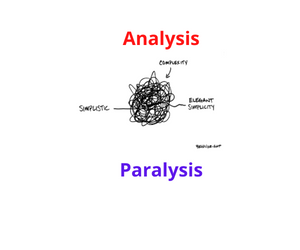FOBO. Front-Office to Back-Office reconciliation. This is a vital, daily control that is designed to ensure that what the traders are trading off is the same as what is recorded in the firm’s processing systems and ledgers.
There are various components to the reconciliation:
Positions: a trader might just be long 1’000 shares of Apple. There may be no open buys or sells. If there are open transactions, for example a sale of 200 shares, then caution is needed as to what position is compared to what. Back-Office systems will tend to work on actual settled position while front office systems will work on trade date. So, at a very simple level a trader position of 800 is the same as a position of 1’000 with a sale of 200 open.
Trades: as a rule, traders have open trades. In some products, they will be open for quite some time, for example, a long dated CDS trade or an NDF trade in FX. Trades need to be compared at a detail level: trade date, settlement date, counterpart, price, quantity, net proceeds at a minimum.
Prices: traders will normally mark their positions. These prices will be compared to prices sourced externally.
The first two checks above are ones normally by the Middle Office. Pricing may be checked by the Product Controllers in the Finance Department.
There will be differences, or as the insiders call them, breaks. Resolving them will often require the involvement of the trader. This is a tricky part of the enquiry process; traders are often in the thick of trading and some will often give these back-office processes short shrift. The quest is to have a plausible, reasonable and timely answer. Good Operations people should not get lulled into thinking that differences are normal. A long time ago in Tokyo at Goldman Sachs, there was a trader who had a break in his book every day. A trade was missing between the Japanese legal entity and the main US entity. The Operations staff could see one side of the trade, but not the other. Every day, the break was different so it was not getting old per se. Every day the trader told the Operations staff that the cause was a timing delay with NY not booking before the Tokyo end of day process. Quite plausible, except when that happens every day. Turns out that the Tokyo end of the trade was a false booking.
Lessons Learned: The FOBO rec is daily must-do task. Breaks need to be questioned., properly. A certain degree of second guessing is required on the part of the Operations staff.
A personal request: If you find this Blog useful, please subscribe. If you like it enough to share, please share this with a friend or two and ask them to subscribe too. There is an E-Mail tool and an RSS link on the right hand side of the main Blog page.
Comments and feedback from regular readers are very welcome. Thank you for each and every one of them. If I am wide of the mark and not offering anything of use, please comment or contact me directly via E-Mail.
Share on:



